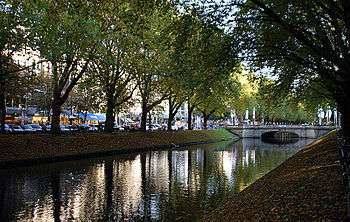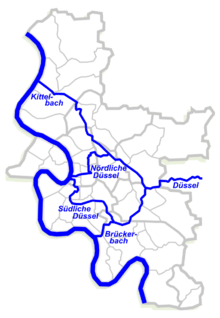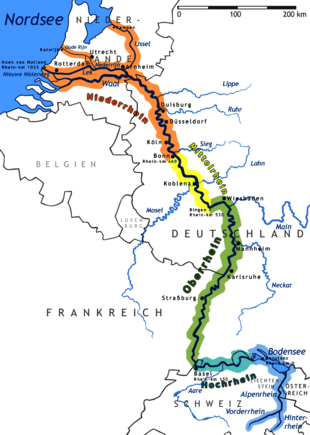Düssel
For the Argentine-Mexican writer and philosopher, see Enrique Dussel.
| Düssel | |
|---|---|
 | |
 The delta of the Düssel | |
| Country | Germany |
| Basin | |
| Main source | Bergisches Land |
| River mouth | Rhine |
| Physical characteristics | |
| Length | 46 km (29 mi) |
The Düssel is a small right tributary of the River Rhine in North Rhine Westphalia, Germany. Its source is east of Wülfrath. It flows westward through the Neander Valley where the fossils of the first Neanderthal man were found in 1856. At Düsseldorf it forms a river delta by splitting into four streams (Nördliche Düssel, Südliche Düssel, Kittelbach, Brückerbach), which all join the Rhine after a few kilometers.
Düsseldorf takes its name from the Düssel: Düsseldorf means "the village of Düssel". The name Düssel itself probably dates back to the Germanic *thusila and means "roar" (Old High German doson).
Coordinates: 51°13′N 6°45′E / 51.217°N 6.750°E
This article is issued from Wikipedia - version of the 5/23/2016. The text is available under the Creative Commons Attribution/Share Alike but additional terms may apply for the media files.
